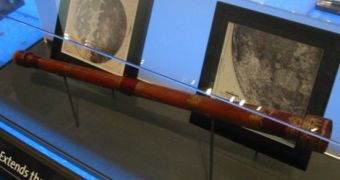The International Year of Astronomy is well underway, and one of the initiatives meant to celebrate the 4 centuries that passed since Galileo first studied the skies, using nothing more than a basic telescope, is to attempt to rebuild that device, and to get a glimpse of how the world could be seen through the scientist's eyes. And some astronomers take that very seriously – there is even talk of them opening up his tomb and getting a DNA sample.
Old texts say that Galileo died blind, under house arrest, a sentence he was given by the Catholic Church's Roman Inquisition. Now, researchers want to test his DNA for any diseases he might have had, and to incorporate all the data in a computer program, designed to show us precisely what he saw when he first looked through the lenses of the first telescopes.
But building the old instruments again is very difficult, so the team in charge of the operation took it upon itself to measure the shape and refractive index of surviving similar lenses, and to use a process called X-ray fluorescence in order to discover exactly how the light passing through the glass behaved before leaving it.
Curators and astronomers from Florence, Italy, working at the Institute and Museum of the History of Science, and the Arcetri Observatory, respectively, report in the January issue of the journal Physics World that they will be soon attempting to view, identify and catalog all the objects included in Galileo's work, the Sidereus Nuncius (Starry Messenger, in English), including the phases of Venus, the moons of Jupiter, the planet Saturn and our own Moon.
And while they may succeed in doing that, the team has very little chances of harvesting DNA from Galileo's remains. The great scientist is entombed at the Basilica of the Holy Cross in Florence, which refuses to give permission for the digs.
This is of course just one of the many activities that will mark the 400th year of astronomy on Earth. Across the world, individual research of student projects will undoubtedly raise international awareness on this discipline, and will make more people interested in it.

 14 DAY TRIAL //
14 DAY TRIAL //